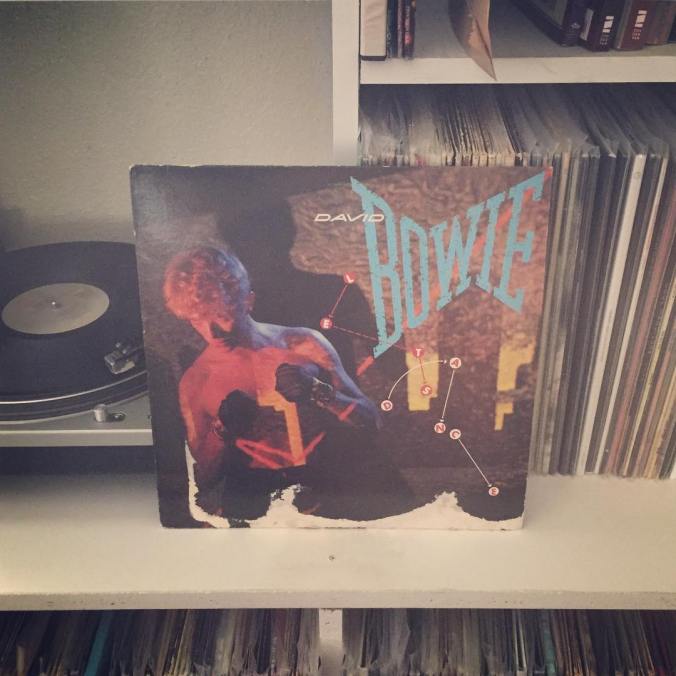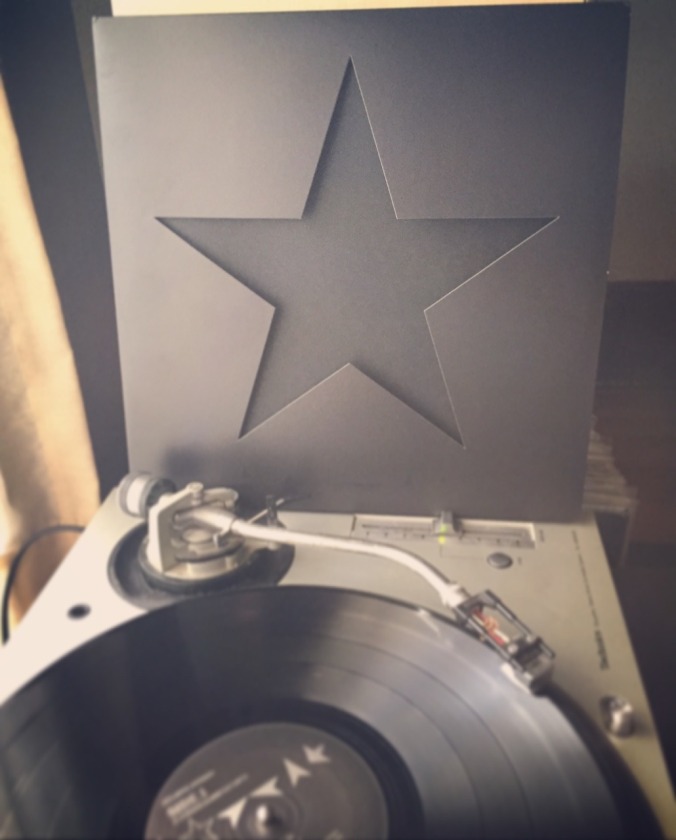Death has a funny way or altering an artist’s work. Often when a musician dies close to the release of an album, listeners pore over the lyric sheets as if with a magnifying glass, instilling even the most circumstantial phrases with a sense of gravitas the artist didn’t intend. Joy Division’s
Closer will forever be heard through the filter of Ian Curtis’ suicide. Johnny Cash’s
American V: Hundred Highways will forever feel like a sage elder handing down his last piece of wisdom.
In the same way, it is impossible to separate
Blackstar from Bowie’s death.
In this case, however, that’s by design. David Bowie knew he was dying. He knew this would be his last album. And it is just as mercurial and forward thinking an album as the man was himself. Nearly fifty years after releasing his debut, it would have been perfectly acceptable to release a sort of retrospective sounding disk, echoing any of his past versions: Major Tom, Ziggy Stardust, The Thin White Duke, The Man Who Fell to Earth, or even the blue-suited dancefloor master that dominated the 80s. But Bowie has always been one to sidestep expectations, and releasing a genre-stretching magnum opus two days before his death is the perfect Bowie move.
The sounds on here run the gamut from dark jazz with ominous saxophones and skittering drums to to frenetic rock and roll, coated with the occasional Broadway dramaticism. Girl Loves Me pairs industrial bass thuds with one of the strangest melodies Bowie has ever sung (and the most surreal lyrics–“where the fuck did Monday go?”). I Can’t Give Everything Away waxes melodramatic over an electronic pop beat. There are shades of Berlin’s fierce adventurism and Ziggy’s theatricality, but this is largely new territory for Bowie. And if anyone can use their impending death to usher in a new period of their work, it’s David Bowie.


 By the beginning of the 80s, David Bowie had been through enough career turns to make the most accomplished musicians dizzy. He had cut his teeth with
By the beginning of the 80s, David Bowie had been through enough career turns to make the most accomplished musicians dizzy. He had cut his teeth with 
